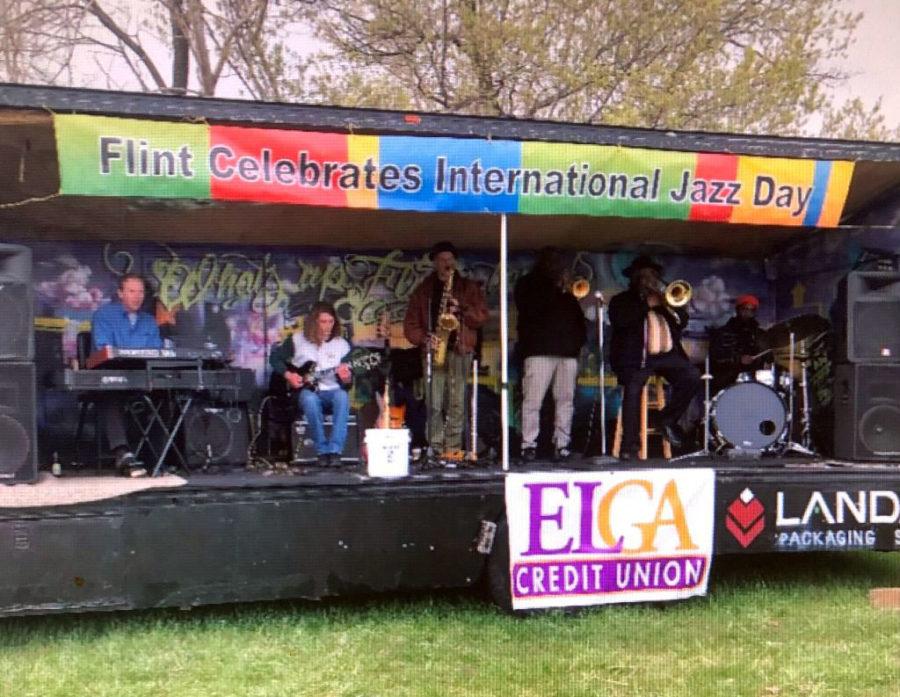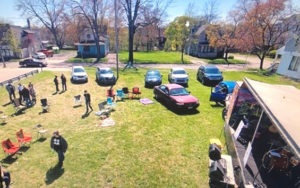
For decades, Flint, Michigan has loomed large in the American imagination, and not always for the best of reasons. Following a mostly prosperous early history that peaked with its role as a booming General Motors factory town in the 1950s and ‘60s, the mid-sized city about an hour’s drive from Detroit has since experienced a series of high-profile setbacks. From the unemployment epidemic that followed mass GM layoffs in the 1980s (brought to national attention by Michael Moore’s hit documentary “Roger & Me”) to multiple municipal financial meltdowns, to the multi-year water crisis that garnered international headlines a decade ago, the city developed a reputation as a sort of poster child of post-industrial decline.
And yet, that’s hardly a complete picture of this diverse community of 81,000 people, especially in recent years. Beautification efforts and major renovation projects have brought new energy and businesses to downtown. Flint’s centrally-located colleges (especially Kettering University and the University of Michigan-Flint) have been playing increasingly vital roles in city life. And starting in June, the inaugural Levitt AMP Flint Music Series, presented by the nonprofit Jazz on Wheels, will bring free, live music to a grassy public space in the city’s downtown district for the next three summers.
“Back in the ‘50s and ‘60s, at one point Flint had the highest per-capita income in the country, because of the auto industry,” Jazz on Wheels Founder Pat Cronley says. “And so there were a lot of clubs that had music seven nights a week. There were a lot of working musicians here, a lot of things going on. But now there isn’t a lot of live music, and we really need to fill that void.”
A longtime Flint resident and professional jazz pianist, Cronley started Jazz on Wheels 20 years ago, in response to budget cuts to music and arts programs in Flint’s public schools. Inspired by Dr. Billy Taylor’s famed Jazzmobile program in New York City, Cronley converted a large truck into a mobile stage. He and fellow musicians began to visit locations all over Flint, offering free jazz performances at schools, water distribution centers, Juneteenth celebrations, and basically anywhere he could find space to park his gas-powered bandstand. Over time local churches and civic leaders got involved, Cronley bought a bigger truck, and during the Covid pandemic, Jazz on Wheels launched a free Friday night jazz series in an abandoned parking lot.
In fact, it was one of Jazz on Wheels’ biggest boosters in the city, former Flint Arts Placement Director Kady Yellow, who first suggested to Cronley that he should apply for a Levitt AMP Grant to take the organization’s work to an even broader audience.
“I thought it was a perfect fit,” Cronley says. “I’m used to producing shows in unconventional areas.”
Though the nonprofit’s roots are in jazz, Levitt AMP Flint hopes to present a wide range of music genres for its inaugural 2023 season, from bluegrass to hip-hop, rock, gospel and more. The series will take place in an unused grassy area next to Totem Books, with Jazz on Wheels’ first truck, now stationary, serving as its permanent stage.
Totem Books, which is partnering with Jazz on Wheels to present the Levitt AMP Flint Music Series, has its own story of neighborhood renewal. The store/café—which sells used books, vinyl records, and coffee—opened a few years ago, taking over a building which was previously a liquor store. Located just a five-minute walk from downtown Flint’s main strip, the store has since become a hotspot for cultural events, welcoming audiences of all ages and backgrounds to everything from music to poetry readings, art workshops, and drag shows.
In preparation for the Levitt series, Cronley plans to enliven the outdoor space even more, making the area an all-encompassing hub for creativity.
“We have a lot of talented graffiti artists in Flint who have really beautified the city,” Cronley says. “All over the city you’ll see these great murals—some are commissioned, some are not—and occasionally someone will come and create a beautiful work of art, and the city will have to paint over it, which is a shame. So we’re going to involve some of these artists in the Levitt venue. We’ve already painted one [adjacent] building, and we’ve got a condemned building next door that we hope to paint as well. The whole space is going to be a backdrop for art and music. Because I think that’s the future of the city: young people who are art-minded, culturally-minded, and music-minded.”
As Cronley notes, the fact that Jazz on Wheels’ previous Friday night series often attracted audiences in the hundreds, while mostly relying on word-of-mouth promotion, demonstrates the community’s hunger for the sort of communal creativity that the Levitt AMP grant will help foster.
“It was so encouraging to see everybody out together, getting along, dancing. And even if the concert only goes until 7:30, people would just stick around after dark. It was like a flash-mob get-together. So we’ve already got a built-in following, and it’s been a grass-roots movement.”
And that is ultimately the image of Flint that Cronley hopes to export to the rest of the country: not as a city that is defined by its challenges, but rather as a place that celebrates the arts, music, and community pride.
“Our challenges are not unique,” says Cronley. “We are not the only community in the country that’s had a large industry leave and the city kind of collapse. But the people here are still strong. We stay. And we fight for our city.”
Stay tuned for details on the upcoming Levitt AMP Flint Music Series!

